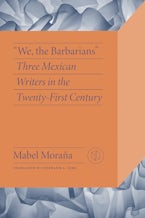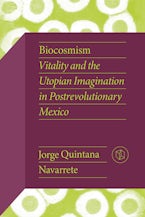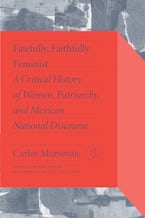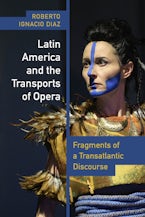- Home
- Francisco de Paula Brito

Francisco de Paula Brito is a biography of a merchant, printer, bookseller, and publisher who lived in Rio de Janeiro from his birth in 1809 until his death in 1861. That period was key to the history of Brazil, because it coincided with the relocation of the Portuguese Court from Lisbon to Rio de Janeiro (1808); the dawning of Brazilian Independence (1822) and the formation of the nation-state; the development of the press and of Brazilian literature; the expansion and elimination of the trans-Atlantic slave trade; and the growth of Rio de Janeiro’s population and the coffee economy. Nevertheless, although it covers five generations of Paula Brito’s family—men and women who left slavery in the eighteenth century—this book focuses on its protagonist’s activities between the 1830s and 1850s.
During that period, Francisco de Paula Brito became one of the central figures in the cultural and political scene in the Imperial capital, particularly through his work as a publisher. Paula Brito’s success was due in part to his ability to forge solid alliances with the Empire’s ruling elite—among them leading politicians responsible for the unification of the vast Brazilian territory and for the maintenance of slavery and the illegal trafficking of Africans. Consequently, through the books and newspapers he published, Francisco de Paula Brito became part of a much larger project.
During that period, Francisco de Paula Brito became one of the central figures in the cultural and political scene in the Imperial capital, particularly through his work as a publisher. Paula Brito’s success was due in part to his ability to forge solid alliances with the Empire’s ruling elite—among them leading politicians responsible for the unification of the vast Brazilian territory and for the maintenance of slavery and the illegal trafficking of Africans. Consequently, through the books and newspapers he published, Francisco de Paula Brito became part of a much larger project.
Foreword to the Brazilian Edition Jefferson Cano
Acknowledgments
Introduction
PART ONE: THE VENTURES AND MISADVENTURES OF A FREE PRINTER
1. A “Dove without Gall” and the Court of Public Opinion
2. Plantation Lad
3. Apprentice Printer and Poet
4. 1831, Year of Possibilities
5. Bookseller-Printer
6. Press Laws and Offences in the “Days of Father Feijó”
PART TWO: CONSERVATIVE IMPARTIALITY
7. “A Very Well Set-Up Establishment”
8. Newspapers, Theses and Brazilian Literature
9. Workers, Slaves and Free Africans
10. “The Progress of the Nation Consists Solely in Regression”
PART THREE:
11. Man of Color and Printer of the Imperial House
12. From Printer to Literary Publisher
13. Debts and the Dangerous Game of the Stock Market
14. From Bankruptcy Protection to Liquidation
PART FOUR: REDISCOVERED ILLUSIONS
15. A New Beginning
16. The Petalogical Society
17. Literary Mutualism
18. The Publisher and His Authors
19. Rio de Janeiro’s Publishing Market (1840-1850)
20. The Widow Paula Brito
Epilogue
Appendices
Sources and Bibliography
Image Credits
Acknowledgments
Introduction
PART ONE: THE VENTURES AND MISADVENTURES OF A FREE PRINTER
1. A “Dove without Gall” and the Court of Public Opinion
2. Plantation Lad
3. Apprentice Printer and Poet
4. 1831, Year of Possibilities
5. Bookseller-Printer
6. Press Laws and Offences in the “Days of Father Feijó”
PART TWO: CONSERVATIVE IMPARTIALITY
7. “A Very Well Set-Up Establishment”
8. Newspapers, Theses and Brazilian Literature
9. Workers, Slaves and Free Africans
10. “The Progress of the Nation Consists Solely in Regression”
PART THREE:
11. Man of Color and Printer of the Imperial House
12. From Printer to Literary Publisher
13. Debts and the Dangerous Game of the Stock Market
14. From Bankruptcy Protection to Liquidation
PART FOUR: REDISCOVERED ILLUSIONS
15. A New Beginning
16. The Petalogical Society
17. Literary Mutualism
18. The Publisher and His Authors
19. Rio de Janeiro’s Publishing Market (1840-1850)
20. The Widow Paula Brito
Epilogue
Appendices
Sources and Bibliography
Image Credits
Rodrigo Camargo de Godoi is a professor of Brazilian history at the University of Campinas in São Paulo, Brazil.
H. Sabrina Gledhill is a UK-based freelance writer, researcher, curator, translator, editor, and lecturer.
"Paula Brito, a man of African descent, became the most important nineteenth-century Brazilian publisher. Rodrigo Godoi offers a detailed study of his trajectory, social relations, business practices, and cultural influence. This book is a major contribution to the history of the book and of the publishing industry."
—Sidney Chalhoub, author of A força da escravidão: ilegalidade e costume no Brasil oitocentista
"Impressive portrait of a free man of color of African descent, who published twenty-eight newspapers and Brazilian novels, plays, and poetry in nineteenth-century Rio de Janeiro. This essential biography recreates the lives of free people of color in a slave society and documents the development of print and book culture in Brazil."
—Mary C. Karasch, author of Slave Life in Rio de Janeiro, 1808–1850
"Godoi's brilliant socio-cultural biography of the printer Paula Brito in Imperial Brazil illustrates why the history of the book and of reading are among the strongest fields of research in Brazilian history today. Through Godoi's meticulous research and elegant storytelling, we discover how in a slave society a black publisher became a central, highly influential figure in political and intellectual life by skillfully negotiating the contradictions of his status with the empire's most powerful elites. This story is bigger than that of one man. Through this insightful study of Brito's life, we discover new, critical aspects of nineteenth-century Brazil, from independence and abolition to the birth of the modern nation. This book is life history at its best."
—Jean Hébrard, co-author of Freedom Papers: An Atlantic Odyssey in the Age of Emancipation











